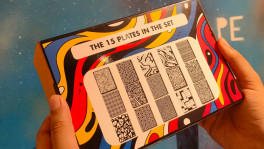Europe's space telescope launches to target universe's dark mysteries

Europe's Euclid space telescope blasted off Saturday, kicking off a first-ever mission to shed light on two of the universe's greatest mysteries: dark energy and dark matter.
"I can tell you, I'm so thrilled, I'm so excited to see this mission up in space," European Space Agency (ESA) Director General Josef Aschbacher said after the launch.
The telescope successfully took off from Cape Canaveral, Florida, at 11:12 am local time (1512 GMT) on a SpaceX Falcon 9 rocket.
Shortly after, once separated from the rocket, it emitted its first signal, as scheduled.
The ESA was forced to turn to billionaire Elon Musk's firm to launch the mission after Russia pulled its Soyuz rockets in response to sanctions over the war in Ukraine.
"The launch was perfect," said Carole Mundell, ESA's science director. "Now begins that journey."
After a month-long trip through space, Euclid will join the James Webb telescope at a stable hovering spot around 1.5 million kilometers (more than 930,000 miles) from Earth called the second Lagrange Point.
From there, Euclid will chart the largest-ever map of the universe, encompassing up to two billion galaxies across more than a third of the sky.
By capturing light that has taken 10 billion years to reach Earth's vicinity, the map will also offer a new view of the 13.8-billion-year-old universe's history.
"We will unravel the mysteries of the Dark Universe," Mundell said.
'Cosmic embarrassment'
Scientists hope to use information gathered by Euclid to address what project manager Giuseppe Racca calls a "cosmic embarrassment": that 95 percent of the universe remains unknown to humanity.
Around 70 percent is thought to be made of dark energy, the name given to the unknown force that is causing the universe to expand at an accelerated rate.
And 25 percent is dark matter, thought to bind the universe together and make up around 80 percent of its mass.
"Ever since we could see stars we've wondered, is the universe infinite? What is it made out of? How does it work?" NASA Euclid project scientist Michael Seiffert told AFP.
"It's just absolutely amazing that we can take data and actually start to make even a little bit of progress on some of these questions."
'Dark detective'
Euclid consortium member Guadalupe Canas told a press conference ahead of the launch that the space telescope was a "dark detective" which can reveal more about both elements.
Euclid, which is 4.7 meters (15 feet) tall and 3.5 meters wide, will use two scientific instruments to map the sky.
Its visible light camera will let it measure the shape of galaxies, while its near-infrared spectrometer and photometer will allow it to measure how far away they are.
So how will Euclid try to spot things that cannot be seen? By searching for their absence.
The light coming from billions of light years away is slightly distorted by the mass of visible and dark matter along the way, a phenomenon known as weak gravitational lensing.
"By subtracting the visible matter, we can calculate the presence of the dark matter which is inbetween," Racca told AFP.
While this may not reveal the true nature of dark matter, scientists hope it will throw up new clues that will help track it down in the future.
As for dark energy, French astrophysicist David Elbaz compared the expansion of the universe to blowing up a balloon with lines drawn on it.
By "seeing how fast it inflates," scientists hope to measure the breath -- or dark energy -- making it expand.
'Gold mine'
A major difference between Euclid and other space telescopes is its wide field of view, which takes in an area equivalent to two full moons.
Project scientist Rene Laureijs said that this wider view means Euclid will be able to "surf the sky and find exotic objects," like black holes, that the Webb telescope can then investigate in greater detail.
Beyond dark energy and matter, Euclid's map of the universe is expected to be a "gold mine for the whole field of astronomy," said Yannick Mellier, head of the Euclid consortium.
Scientists hope Euclid's data will help them learn more about the evolution of galaxies, black holes and more.
"We are trying to determine something that escapes us enormously: dark matter, dark energy," Marc Sauvage, a member of the Euclid consortium, told AFP.
The first images are expected once scientific operations start in October, with major data releases planned for 2025, 2027 and 2030.
The 1.4 billion euro ($1.5 billion) mission is intended to run until 2029, but could last a little longer if all goes well.
Over the next few years, NASA also plans to launch the Nancy Grace Roman space telescope, its own project to study dark matter and dark energy.
The two missions will complement each other, said Sauvage.
"In the end, there is only one universe."


 Keep updated, follow The Business Standard's Google news channel
Keep updated, follow The Business Standard's Google news channel















